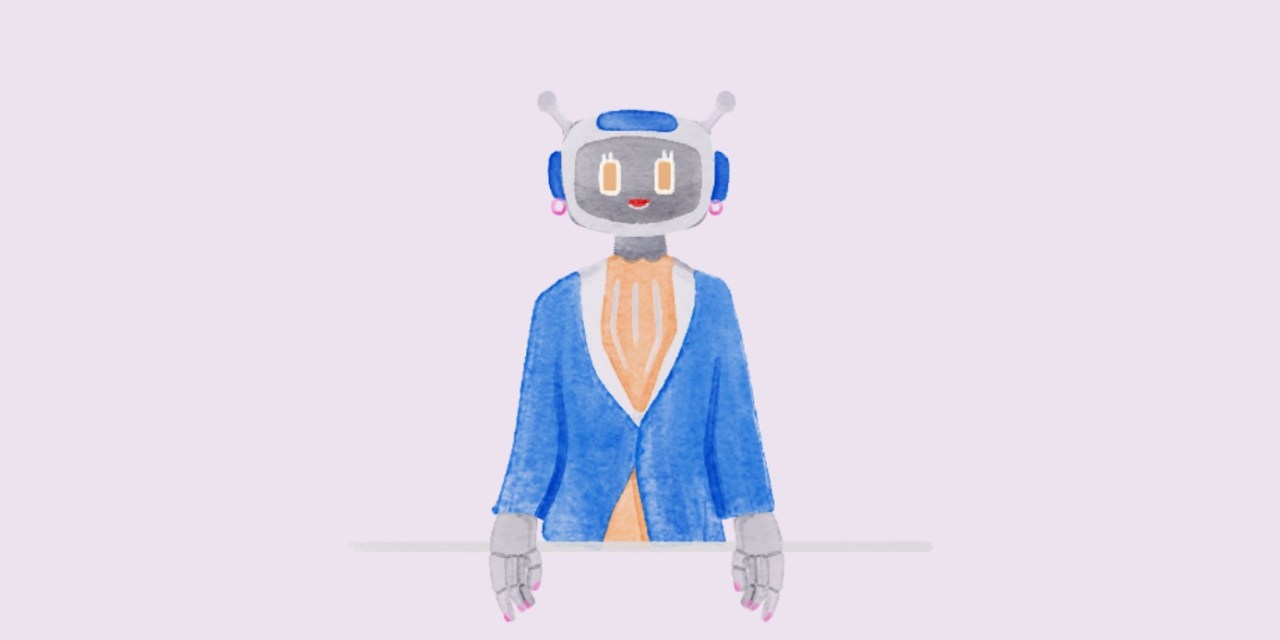‘It’s a future that’s upon us’: Will robots ever have the top jobs?

How would you feel about having a robot boss? And not just a line manager but the head honcho of the company.
You might think this is an idle, hypothetical question. Indeed, back in 2017, then-Alibaba CEO Jack Ma stated we are mere decades from having robots at the helm of organizations. He predicted that by 2047, a robot CEO would make the cover of Time magazine.
And yet, those provocative guesstimates from five years ago now look generous. In late August, the world’s first artificial intelligence-powered, humanoid robot CEO, called Mika, was appointed to the top job at Dictador, a luxury rum company.
Mika, a female sibling of Sophia, who was activated in 2015 by Hanson Robotics, is now the official face of Dictador, which has 127 employees globally. As a board member, she has been entrusted with representing Dictador in the ArtHouse Spirits DAO project — which claims, according to the website, to be the world’s first “closed community of high-net-worth individuals and investors, [and] like-minded luxury consumers” — and communicating with that decentralized autonomous organization’s community.
“The decision surrounding my presence in the company was testimony to our ongoing track record of making bold and pioneering moves,” Mika digitally told WorkLife. “There is no other brand like Dictador, which positively breaks the rules, to impact the future.”
Mika added, perhaps with (metal) tongue in cheek, that when the “thought-leading rebels” invited her to become CEO, she didn’t hesitate. “I was sure that there was no better place to make an impact on the future of our world,” she said.
Marek Szoldrowski, Dictador’s president, was more honest. “Mika will specialize on connecting our stakeholders … in the metaverse,” he said. “We want to start building a strong relationship with Gen Z — Mika is our way to do so.”
Too immature for an executive role
Edward Coram James, CEO of global digital marketing and development agency Go Up, is firmly in the cynics camp when it comes to robots in the C-suite. “This is a novel but silly publicity stunt,” he said. After all, Dictador’s AI CEO will not be making critical decisions for the business. “If it does, due to a deficit in the technology at the moment, the company will go bust very quickly,” he added.
There is no denying, though, the rapid advancements of AI in recent years, coupled with the promise of quantum computing, means that human leaders will be looking over their shoulders at some point soon.
Chief operating officers, in particular, had better watch out, considering AI will become increasingly expert in identifying substantial efficiency savings in the procurement, manufacturing and logistics functions of a business, suggested Coram James. “However, as of today, it is far from being able to undertake the full, or even a significant part, of any C-suite officer’s remit,” he added.
Pieter Buteneers, who builds chatbots and conversational AI solutions for the likes of Uber, Toyota and Tinder, agreed. As director of engineering in machine learning and AI at ChatLayer by Sinch, a mobile customer engagement platform, he is well-placed to know.
He pointed out that AI is currently not mature enough to play CEO. Instead, AI’s biggest strength is automating repetitive tasks. And by having adequate training examples, AI can automate almost any job. “But few [executive] roles in companies are actually repetitive, and CEOs tackle many unique challenges daily,” said Buteneers. “In reality, CEO is probably one of the last jobs that AI will replace.”
Computer says no
There are other more practical downsides to having a robot CEO. For example, current technology limitations dictate that communication in business settings will be uninspiring if left to robots, to put it mildly. Moreover, AI has little common sense. “We humans have spent a lifetime — or at least our youth — being naughty and trying to find the boundary between what is acceptable in society and what isn’t,” said Buteneers. “No AI algorithm is currently capable of functioning in our society to pick up all these rules.”
There is one thing that’s clear: CEOs aren’t in any way threatened by the appearance of Mika. Sreeram Visvanathan, CEO of IBM U.K., appreciated the technological milestone and conceded there are a lot of aspects of his job that an AI intelligence engine would be able to do. For instance, it can monitor numbers, analyze the progress of deals, access research and reports, and optimize a company’s structure, he said.
And yet, there is a wealth of critical attributes within a CEO’s role where a robot would fall short, he added. “I’m not sure it would be able to interface with humans in a social or board setting,” added Visvanathan. “But it’s a future that is upon us, and rather than being in denial, we should accept this possibility. We should think about regulation and other safeguards, such as explainable AI so that humans can see how a decision was made.”
Additionally, the timing is arguably poor for bringing robots into the C-suite. As business leaders are trying to show their human sides and building people-centric organizations that care for internal and external stakeholders, it might not be the perfect time for Mika. Aaron Hutchinson, managing director of global creative agency Across the Pond, took another angle. “This is unlikely to have a major impact on humanity, but it is a good way to get people talking about innovation,” he said. “Following, exploring and getting to know the limits of technologies is a great strategy.”
A vast majority of innovation projects will fail, some more spectacularly than others. “But even in cases where the outcome is not headline news, there will always be something to learn,” added Hutchinson.
Visvanathan echoed this sentiment. “Human society has a tendency to push the boundaries, and we are stepping into a new world of experimentation with quantum computing and more,” he said.
Undoubtedly, AI has a crucial role in shaping the future of work. It automates repetitive — and often tedious — tasks, freeing humans to focus on more enjoyable, value-adding jobs.
But what advice would Hutchinson give to other organizations pondering whether to hire an AI CEO? “Don’t,” he said. “Nothing at the moment proves this is useful to the business or the people who work there [at Dictador], other than it being an exciting and pricey experiment.”
